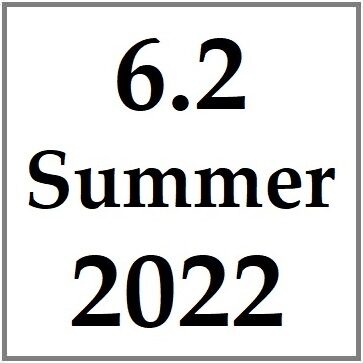The Wall Dream
Alessandra Occhiolini
Keywords: disability, academic ableism, chronic illness
Categories: Sick/Disabled Bodyminds during Sick/Disabling Times; Academic Pressures (or Critiques of Neoliberal Horseshit Productivity Expectations, as suggested by Amy Vidali)
Content warning: academic ableism
In a handful of years where every day feels heavy, I keep having the same dream. There is a very narrow hole in a wall, and I am told this hole is my door. The hole will be my entry to somewhere vital to my own survival. A bedroom, a bathroom. Access to water. I protest that I can’t get through, but I am made to put it to the test. Wiggling, shimmying, I always make it through on the first pass. Then, the dream ends, shimmering out in a haze of anxiety: will I make it through the hole tomorrow?
This may sound like a too neat metaphor for the two years I have now spent attempting to get through a PhD program with a chronic illness in a global pandemic, but I assure you, the dream really visits me. It’s a rather boring guest—the gaping horror of the hole in the wall, the absence of the door, the body that cannot perform the same act of slipping through without variance. In waking life, I spend hours filing documents that detail the interior workings of my body. I make my own doors. I join together with friends with similar needs; I seek care and give care. To make doors where there are none: the mission of the disabled graduate student under any conditions, some more wearing than others.
Perhaps the only grace of my nightly visitor, this dream of difficult embodiment, is the reminder I have a body after all. I spend so much time trying to create a life where I do not think about my body or its needs in a way that would disrupt the performance of health that my job demands. I structure my work and how far I will walk for groceries so that I might create an illusion of normalcy, a course of study and living in which most of the realities of illness are hidden. But who am I caring for, in doing this? I used to think this was a way of caring for myself, and indeed in some ways it is. But I feel more and more that it is a performance of ability and ease, a way of bending to the academic calendar. I carve away much of my life to do this work. As COVID cases rise again, and we debate in-person learning again, my body and its anxieties begin to assert themselves in unruly ways. As per Sara Ahmed’s work on queer use and academe, I vex the intended path forward, standards for facilities, the purpose of the seminar, graduate study.
In this continuing crisis, I sometimes think my greatest act of care for myself is to be that vexation. To not erase the vulnerability of my body in a time of crisis. To refuse to make this look easy, to take the time I need. I came to graduate study for many reasons, but a lecture I heard Sara Ahmed give at Berkeley in 2018 was a turning point. Ahmed was talking about the queer use I mentioned and leaving queer graffiti inside the institution: leaving a reminder that “we were here, and we did not get used to it.” Now that I’m inside, I’ve found that the rallying cry resonates with my experience of disability in higher ed even more so than my experiences of queerness that first stuck those words to my skin. I don’t want to get used to this.
The nice thing about writing is that you can dream it all differently. I don’t want the impossible. What I want is simple. Just once, I want to refuse to crawl through the hole in the wall. I want to talk to the person who put it there. I want to ask them, “Who the hell thinks this is okay? Isn’t this, I don’t know, a bit of a deeply weird thing to ask a person to do? What is it like, to live in a world where you’re certain that each time you can make it through this gap?” And failing all that, I want to write this to you. I want you to know: I was here, and I did not get used to it.
References
Ahmed, S. (2018, February 16). Queer use. Queer Conversation in Culture and the Arts. UC Berkeley.
Bio
Alessandra Occhiolini is a PhD student in English literature at CUNY's Graduate Center. She writes about temporality, embodied illness, and monstrosity. Her most recent work can be found in LARB's Avidly, The Modernist Review, and Back Patio Press.
